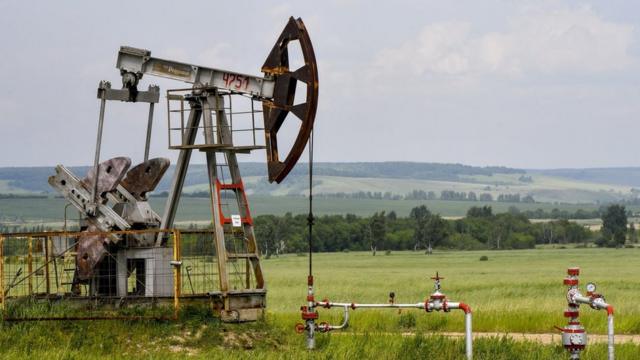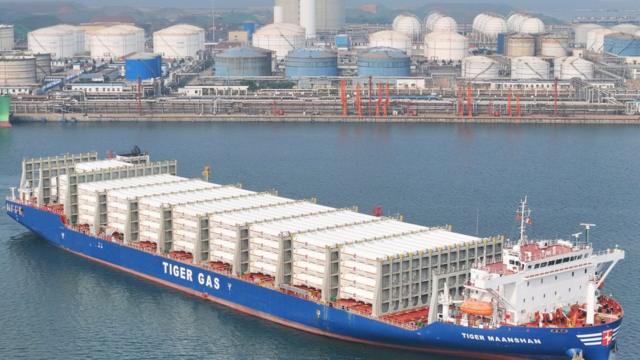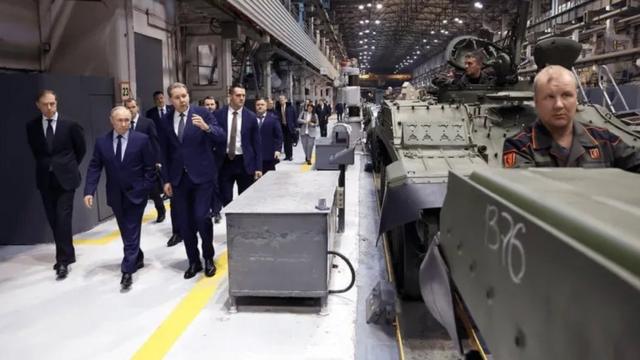
Russia's full invasion of Ukraine in February 2022 angered the international community and caused a wave of sanctions to weaken Russia's combat capabilities in neighboring countries.
Russia's overseas assets are frozen, the connection with international financial systems is cut off, and energy exports are targeted.
I still remember the effects of western officials and commentators at the time to describe the effects of sanctions: paralysis, decline, and unprecedented.These adjectives are full of surroundings, and the situation seems to be obvious -the Russian economy must be difficult to bear these pressures.
Facing the prospect of economic collapse, the Kremlin is forced to retreat and withdraw troops.Is this true?
27 months have passed, and the violent scene of war is still continuing.The Russian economy is not only paralyzed, but also grows.The International Monetary Fund predicts that Russia's economic growth will reach 3.2%this year.Despite various restrictions, this number still exceeds all developed economies around the world.
The sanctions that "cause recession" did not bring shortage of supply in the store.Russian supermarket shelves are still full.The price of rising prices is indeed a problem. In the past, some common items were disappeared. Some Western companies withdrew from the Russian market because of protest against Ukraine's invasion.
But their products still enter Russia through various channels.If you look closely, you can still discover the cola of the United States in the store.
CEOs from Europe and the United States may no longer travel through the annual economic and trade activities of Russia, but this year's St. Petersburg International Economic Forum is said to have attracted representatives from more than 130 countries and regions to participate.
The Russian economy has not folded under pressure, but has won a lot of markets in the two major markets of the East and the world.
These achievements have made Russian officials dare to brag about their enthusiasm, and have frustrated their attempts to isolation in Russia politically and economically.
"It seems that the Russian economy has been successfully adjusted from unfavorable external conditions," said Yevgeny Nadorshin, a senior economist of PF Capital, said "Many operating mechanisms, but many of them have recovered and adapt to "
Replacement method
Does this mean that sanctions have failed?
"What is important is our understanding of what sanctions can do and what they cannot do." Said Elina Ribakova, a senior researcher at Peterson Institute for International Economics.
"This is not like pressing the switch, and Russia suddenly disappears. What sanctions can do is to allow a country to make a brief chaos for a while before finding an alternative method, such as in terms of shipping and selling oil.Measures.
Moscow shifted the direction of oil exports from Europe to China and India.In December 2022, the Seven Kingdoms Group and the EU leaders proposed the upper limit plan (not higher than $ 60 per barrel) to further limit the profit obtained by Russian oil exports.But Western experts also acknowledged that Russia can easily bypass this measure.
The upper limit of the price can justify the dilemma facing the United States and its partners.
They know that Russia is one of the main participants in the global energy market. They also need to use Russian oil to avoid high oil prices. As a result, Moscow is still making money.
"To some extent, we did not really sanction Russian oil," Ribakova concluded. "The upper limit of the setting price is to have both fish and bear's paw.Well. Unfortunately, if the two conflicts, the previous factor will win.
Russia has become China's largest crude oil supply country, and its importance to Moscow is far more than that.The trade between the two countries reached a record $ 240 billion (£ 188 billion) last year.

Walking in Moscow and St. Petersburg, even if you are not an economic expert, you can feel the importance of China for sanctions on Russia.The electronic product store is full of tablets, accessories and mobile phones made in China.Chinese automotive retailers have now controlled the local market.
The Russian automobile industry did not wait for its change.At the recent exhibition of Nizhni Novgorod, Russian Prime Minister Mikhail Mishustin saw a new style of the classic car Volga, but the template of this new car is China Changan Automobile.
"Who made the steering wheel? China?" The Prime Minister asked, obviously dissatisfied with the lack of national components.
"I hope the wheels are made by Russia," he said.
But in the end it is not the current economic growth of Russia.
It is military expenditure.

In Russia's "special military operations" that Russia has insisted on Ukraine, the military factory has been producing day and night, and more and more Russians are employed by the defense industry.
Military factories have risen steadily.
The cost of spending huge sums of money means that there are less expenses in other places.
"This is a long -term view of this to destroy the economy," Chris Weafer, chief executive officer of Macro Advisory, believes that "no money is used for future development."
He said that in 2020, there were many discussions on national project plans, including plans to invest 400 billion US dollars in improving Russian infrastructure, transportation and communications.However, "almost all funds have been transferred to support military industry and stable economy."
Two years later, the Russian economy has adapted to the pressure brought by war and sanctions.The United States is threatening the second round of sanctions on banks that help Russia's transfer, which will bring new problems to Russia.
"The speed of supplies entering Russia has slowed down," Chris Vavier said. "It is more and more difficult to get backups. Every day, banks in China, Turkey, and UAE refuse to trade with Russia.According to news, whether these money is used by Russia for purchasing materials, or other countries for buying oil and other Russian products.
This is why Russia has defeated sanctions is early.So far, Russia has indeed found a way to deal with, bypassing sanctions or reducing its threat.
But the pressure caused by sanctions to the Russian economy has not been far.


